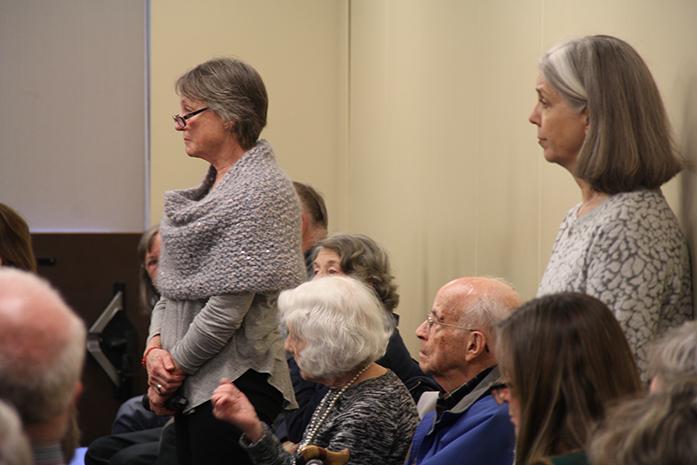By Isabella Senno
The Iowa City Public Library hosted a discussion Wednesday about the importance of mixed-age demographic neighborhoods and how to help Iowa City seniors continue living their fullest lives. The event was co-presented by University of Iowa staff and the founders of Tools and Resources for Active Independent Living, a new nonprofit geared toward supporting the elderly.
The latest data from the Census Bureau show 8.8 percent of Iowa City residents are 65 years old and up, with another 11.1 percent ready to join their ranks within the next five years or so.
“As people age, [we] find that there are things we used to do no sweat, but there will come a time when I say to myself, I’m not getting up on a ladder to change the light bulb anymore, or I’m going on a trip and need someone to house-sit,” said David Rust, the chairman of the organization’s Board of Directors. “It’s those kinds of things that you begin to see as people get older, and it varies based on the person.”
The event’s focus was on making community changes and assisting elderly populations to allow them to retain their place in the neighborhood.
“One of the largest problems for people who are aging is isolation,” Rust said. “The progression for folks, when they get to the point where they can’t live at home, is you go out of your neighborhood, you go into an independent living apartment, then you go into assisted living [or] into a nursing home. Each step is more isolating, and the hope is that when people are in their own neighborhood, they’re more likely to maintain the relationships they have, plus they’re in an intergenerational environment.”
Although getting older has always been a part of life, there has recently been a shift toward a broader perspective about how to best accommodate aging populations and a push to consider the community as an ecosystem of moving parts.
This trend towards more “age-friendly” communities can be beneficial in a multitude of ways, as noted by the panelists, for young and old alike.
“Part of it is being better able to understand the human experience,” said Mercedes Bern-Klug, a UI associate professor of social work and one of the event’s panelists. “At any age sometimes, we don’t have all of the information we need because we tend to hang out with people like us, so when we have geographic physical neighborhoods where people have different perspectives, it expands the informational and experiential resources available to everyone. Humans can build empathy by having direct personal relationships with people who are different from us.”
Bern-Klug also noted more material changes that have been made to accommodate people of varying ages and abilities navigate public spaces that have actually helped everyone a bit, such as the curb cuts on sidewalks.
The discussion closed on an inspiring note.
“Everyone learns from everyone else; we all have things we can offer each other and that we need from each other whether we know it or not,” said panelist Nancy Hausermen, a cofounder of the independent-living group. “What we’re trying to do is continue to make Iowa City a great place as you age and make this a community that remains vibrant for people of all ages.”



